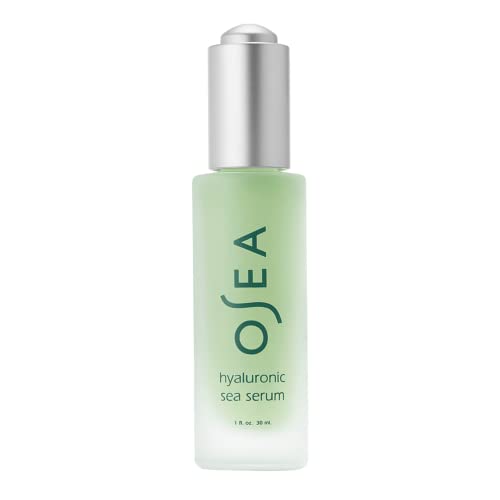
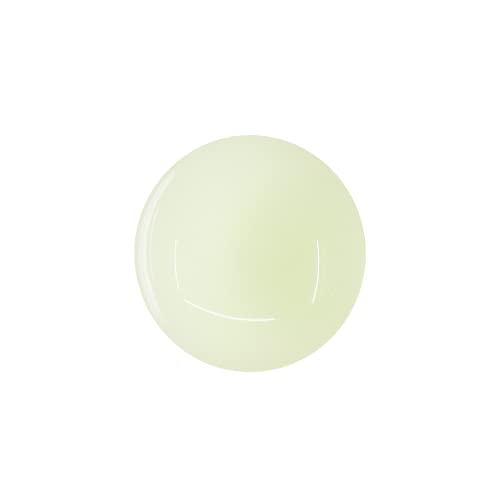
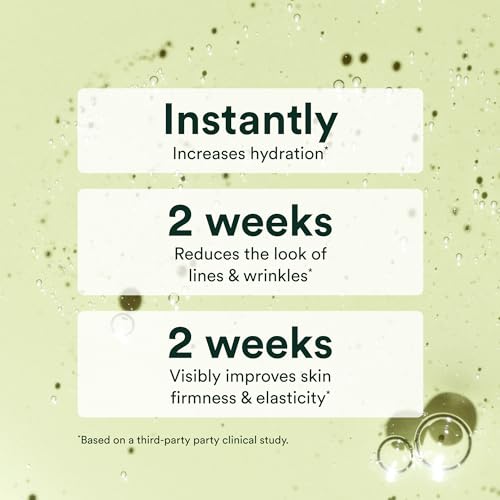
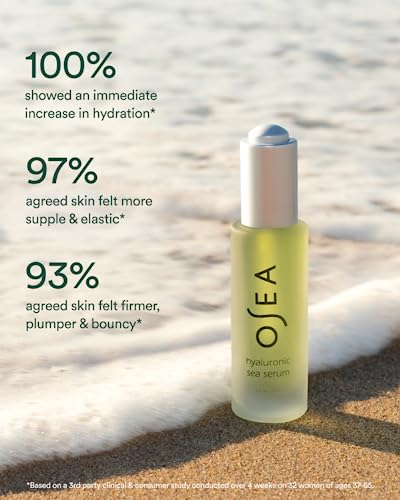
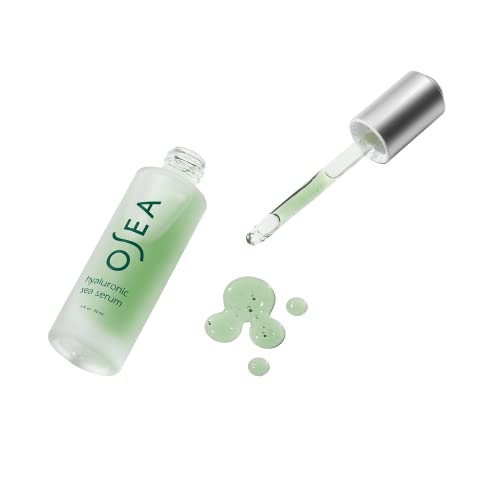
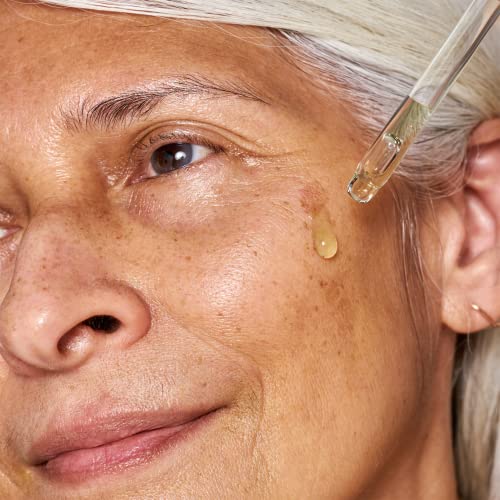
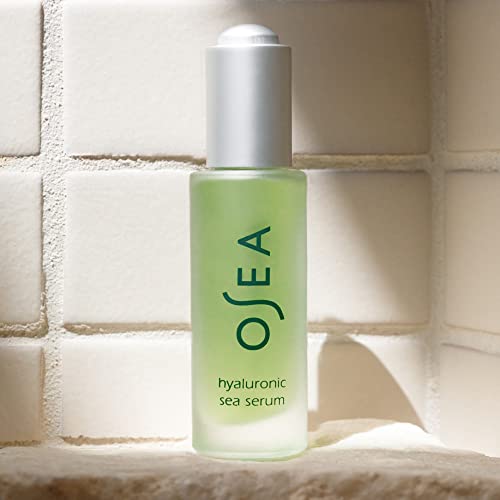
OSEA Hyaluronic Acid Sea Serum - Anti-Aging Hydration, Vegan & Cruelty-Free - 1 oz


Undaria Pinnatifida Extract
Medium RiskUndaria pinnatifida extract is derived from a brown seaweed species known for its nutritional properties. It is commonly used in cosmetic and personal care products for its moisturizing and skin-soothing benefits, as well as its potential antioxidant properties.
Sustai Insights
Undaria pinnatifida extract offers functional benefits, such as hydration and antioxidant effects, making it valuable in skin care formulations. It is generally considered low risk for common health concerns, including carcinogenicity and allergenic potential. However, contamination concerns are noted, indicating a need for careful sourcing. Environmental impacts are minimal, but regulatory restrictions exist for products containing this extract. Overall, the risk level is assessed as medium, suggesting a balanced approach to its use in formulations, with an emphasis on sourcing and safety practices.
Potassium Sorbate
Medium RiskPotassium sorbate is a potassium salt of sorbic acid, primarily used as a preservative in food and cosmetic products. It inhibits the growth of molds, yeast, and some bacteria, extending the shelf life of products. It is commonly found in various formulations due to its effectiveness and low toxicity.
Sustai Insights
Potassium sorbate serves as an effective preservative, preventing microbial growth in food and cosmetic products, which is vital for safety and longevity. Although it has a low risk of carcinogenicity and developmental toxicity, there is a moderate concern regarding allergies and immunotoxicity. Environmentally, it poses minimal risks as it is not significantly bioaccumulative. Regulatory agencies have verified its use, although some products may face restrictions. Overall, it is assessed as a medium risk ingredient, with safe usage practices recommended, and alternatives such as natural preservatives could be considered.
Macrocystis Pyrifera Extract
Medium RiskMacrocystis pyrifera extract is derived from the giant kelp species and is primarily used in cosmetic and personal care products for its hydrating and nourishing properties. It serves as a natural thickener and stabilizer, contributing to the texture and consistency of formulations.
Sustai Insights
Macrocystis pyrifera extract offers functional benefits such as improved moisture retention and potential antioxidant properties. It is considered to have low health risks related to cancer, allergies, and reproductive toxicity. However, contamination concerns exist, highlighting the need for careful sourcing. Environmentally, it poses low pollution risk. Regulatory bodies have not issued significant warnings, resulting in an overall moderate risk assessment. Users should follow safe usage practices, and alternatives like other seaweed extracts may be considered for similar benefits.
Citric Acid
Medium RiskCitric acid is an alpha hydroxy acid used in personal care products primarily for its role as a pH adjuster and natural preservative. It occurs naturally in citrus fruits and is commonly utilized in various formulations for its chelating properties and mild exfoliation benefits.
Sustai Insights
Citric acid offers functional benefits as an effective preservative and pH stabilizer, contributing to product longevity and stability. It is biodegradable and derived from renewable sources. Health risks are low, with minimal concerns regarding carcinogenicity, allergies, and reproductive toxicity. However, moderate use restrictions exist due to potential irritation at high concentrations. Environmental risks are limited, as citric acid is not known to accumulate in ecosystems. Regulatory agencies have no significant advisories against its use. Overall, it is assessed as a medium-risk ingredient, with safe usage practices recommended and alternatives available.
Sodium Acetylhyaluronate
Low RiskSodium acetylhyaluronate is a sodium salt derivative of hyaluronic acid, commonly used in cosmetic formulations for its hydrating properties. It functions primarily as a humectant, attracting moisture to the skin and helping to maintain hydration levels in various personal care products.
Sustai Insights
Sodium acetylhyaluronate is recognized for its effective moisture-retaining properties, enhancing skin hydration and improving product texture. It has low health risks, with negligible concerns regarding carcinogenicity, allergies, or reproductive toxicity. Environmentally, it poses minimal risks and is not associated with significant pollution or bioaccumulation. Regulatory assessments indicate no current restrictions. Overall, it is considered low risk, making it a favorable ingredient in cosmetic formulations.
Chlorophyll
Low RiskChlorophyll is a green pigment found in plants, responsible for the absorption of light energy during photosynthesis. It is commonly used in various products for its coloring properties and potential health benefits. Chlorophyll is often included in dietary supplements and personal care items.
Sustai Insights
Chlorophyll offers functional benefits such as natural coloring and potential antioxidant properties. It is generally recognized as safe with low concerns for cancer, allergies, and reproductive toxicity. Environmental risks are minimal, with no known bioaccumulation or significant pollution. Regulatory bodies, including the FDA, have not placed restrictions on its use. Overall, chlorophyll is assessed as low risk, making it a viable ingredient in products, though it is advisable to follow safe usage practices.
Hyaluronic Acid
Low RiskHyaluronic acid is a natural polysaccharide found in connective tissues, skin, and cartilage, primarily serving as a moisture-retaining agent in cosmetic products. Its primary function is to provide hydration and improve skin elasticity, making it a common ingredient in moisturizers and serums.
Sustai Insights
Hyaluronic acid offers significant functional benefits, such as effective hydration and skin plumping, while being biodegradable and generally recognized as safe by regulatory bodies. Health risks are minimal, with low concerns regarding carcinogenicity, allergies, or reproductive toxicity. Environmental risks are also low, as it is not considered a pollutant or bioaccumulative. Regulatory bodies have not issued major advisories against its use, resulting in an overall low-risk assessment. For safe usage, it is recommended to apply in appropriate concentrations. Alternatives include glycerin or aloe vera, which also provide hydration.
Lonicera Caprifolium (Honeysuckle) Extract
Low RiskLonicera caprifolium (honeysuckle) extract is derived from the flowers of the honeysuckle plant. It is commonly used in cosmetic formulations for its potential soothing properties and is often included for fragrance enhancement or as a natural extract in skin care products.
Sustai Insights
Lonicera caprifolium extract offers functional benefits such as acting as a natural fragrance and providing potential skin-soothing properties. It is considered to have low health risks including low allergenic potential and irritation, with no significant environmental hazards reported. Regulatory bodies do not impose restrictions, and the ingredient is deemed low risk overall. Safe usage involves standard application methods, and while alternatives exist, this extract is generally considered acceptable for use.
Water
Low RiskWater is a clear, colorless liquid essential for various biological processes. It serves as a solvent in formulations, facilitating the dissolution of other ingredients and enhancing product texture and application. Additionally, water plays a crucial role in hydration and is a key component in many cosmetic and personal care products.
Sustai Insights
Water is an effective solvent and hydrator, contributing to the texture and efficacy of formulations. It is biodegradable and generally regarded as safe, with low concerns regarding carcinogenicity, allergies, and reproductive toxicity. However, excessive water usage can lead to environmental concerns, particularly regarding resource depletion. Regulatory bodies do not impose restrictions on water use in cosmetics. Overall, the risks associated with water are low, making it a safe and essential ingredient.
Lonicera Japonica (Honeysuckle) Flower Extract
Low RiskLonicera japonica (honeysuckle) flower extract is derived from the flowers of the honeysuckle plant. It is commonly used in cosmetic formulations for its potential soothing and anti-inflammatory properties. The extract may also provide some antioxidant benefits, contributing to the overall stability and performance of the product.
Sustai Insights
Honeysuckle flower extract offers functional benefits, including soothing and anti-inflammatory effects, which can enhance skin feel in formulations. It is considered low risk for health concerns, such as carcinogenicity, allergies, and reproductive toxicity, with no significant environmental hazards reported. Regulatory bodies do not impose restrictions on its use, supporting its safety profile. Safe usage practices should be followed, although alternatives such as chamomile extract may offer similar benefits with potentially different profiles. Overall, the ingredient presents a low risk assessment.
Sodium Acetylhyaluronate
Low RiskSodium acetylhyaluronate is a sodium salt derivative of hyaluronic acid, commonly used in cosmetic formulations for its hydrating properties. It functions primarily as a humectant, attracting moisture to the skin and helping to maintain hydration levels in various personal care products.
Sustai Insights
Sodium acetylhyaluronate is recognized for its effective moisture-retaining properties, enhancing skin hydration and improving product texture. It has low health risks, with negligible concerns regarding carcinogenicity, allergies, or reproductive toxicity. Environmentally, it poses minimal risks and is not associated with significant pollution or bioaccumulation. Regulatory assessments indicate no current restrictions. Overall, it is considered low risk, making it a favorable ingredient in cosmetic formulations.
Undaria Pinnatifida Extract
Medium RiskUndaria pinnatifida extract is derived from a brown seaweed species known for its nutritional properties. It is commonly used in cosmetic and personal care products for its moisturizing and skin-soothing benefits, as well as its potential antioxidant properties.
Sustai Insights
Undaria pinnatifida extract offers functional benefits, such as hydration and antioxidant effects, making it valuable in skin care formulations. It is generally considered low risk for common health concerns, including carcinogenicity and allergenic potential. However, contamination concerns are noted, indicating a need for careful sourcing. Environmental impacts are minimal, but regulatory restrictions exist for products containing this extract. Overall, the risk level is assessed as medium, suggesting a balanced approach to its use in formulations, with an emphasis on sourcing and safety practices.
Chlorophyll
Low RiskChlorophyll is a green pigment found in plants, responsible for the absorption of light energy during photosynthesis. It is commonly used in various products for its coloring properties and potential health benefits. Chlorophyll is often included in dietary supplements and personal care items.
Sustai Insights
Chlorophyll offers functional benefits such as natural coloring and potential antioxidant properties. It is generally recognized as safe with low concerns for cancer, allergies, and reproductive toxicity. Environmental risks are minimal, with no known bioaccumulation or significant pollution. Regulatory bodies, including the FDA, have not placed restrictions on its use. Overall, chlorophyll is assessed as low risk, making it a viable ingredient in products, though it is advisable to follow safe usage practices.
Potassium Sorbate
Medium RiskPotassium sorbate is a potassium salt of sorbic acid, primarily used as a preservative in food and cosmetic products. It inhibits the growth of molds, yeast, and some bacteria, extending the shelf life of products. It is commonly found in various formulations due to its effectiveness and low toxicity.
Sustai Insights
Potassium sorbate serves as an effective preservative, preventing microbial growth in food and cosmetic products, which is vital for safety and longevity. Although it has a low risk of carcinogenicity and developmental toxicity, there is a moderate concern regarding allergies and immunotoxicity. Environmentally, it poses minimal risks as it is not significantly bioaccumulative. Regulatory agencies have verified its use, although some products may face restrictions. Overall, it is assessed as a medium risk ingredient, with safe usage practices recommended, and alternatives such as natural preservatives could be considered.
Hyaluronic Acid
Low RiskHyaluronic acid is a natural polysaccharide found in connective tissues, skin, and cartilage, primarily serving as a moisture-retaining agent in cosmetic products. Its primary function is to provide hydration and improve skin elasticity, making it a common ingredient in moisturizers and serums.
Sustai Insights
Hyaluronic acid offers significant functional benefits, such as effective hydration and skin plumping, while being biodegradable and generally recognized as safe by regulatory bodies. Health risks are minimal, with low concerns regarding carcinogenicity, allergies, or reproductive toxicity. Environmental risks are also low, as it is not considered a pollutant or bioaccumulative. Regulatory bodies have not issued major advisories against its use, resulting in an overall low-risk assessment. For safe usage, it is recommended to apply in appropriate concentrations. Alternatives include glycerin or aloe vera, which also provide hydration.
Lonicera Caprifolium (Honeysuckle) Extract
Low RiskLonicera caprifolium (honeysuckle) extract is derived from the flowers of the honeysuckle plant. It is commonly used in cosmetic formulations for its potential soothing properties and is often included for fragrance enhancement or as a natural extract in skin care products.
Sustai Insights
Lonicera caprifolium extract offers functional benefits such as acting as a natural fragrance and providing potential skin-soothing properties. It is considered to have low health risks including low allergenic potential and irritation, with no significant environmental hazards reported. Regulatory bodies do not impose restrictions, and the ingredient is deemed low risk overall. Safe usage involves standard application methods, and while alternatives exist, this extract is generally considered acceptable for use.
Water
Low RiskWater is a clear, colorless liquid essential for various biological processes. It serves as a solvent in formulations, facilitating the dissolution of other ingredients and enhancing product texture and application. Additionally, water plays a crucial role in hydration and is a key component in many cosmetic and personal care products.
Sustai Insights
Water is an effective solvent and hydrator, contributing to the texture and efficacy of formulations. It is biodegradable and generally regarded as safe, with low concerns regarding carcinogenicity, allergies, and reproductive toxicity. However, excessive water usage can lead to environmental concerns, particularly regarding resource depletion. Regulatory bodies do not impose restrictions on water use in cosmetics. Overall, the risks associated with water are low, making it a safe and essential ingredient.
Macrocystis Pyrifera Extract
Medium RiskMacrocystis pyrifera extract is derived from the giant kelp species and is primarily used in cosmetic and personal care products for its hydrating and nourishing properties. It serves as a natural thickener and stabilizer, contributing to the texture and consistency of formulations.
Sustai Insights
Macrocystis pyrifera extract offers functional benefits such as improved moisture retention and potential antioxidant properties. It is considered to have low health risks related to cancer, allergies, and reproductive toxicity. However, contamination concerns exist, highlighting the need for careful sourcing. Environmentally, it poses low pollution risk. Regulatory bodies have not issued significant warnings, resulting in an overall moderate risk assessment. Users should follow safe usage practices, and alternatives like other seaweed extracts may be considered for similar benefits.
Lonicera Japonica (Honeysuckle) Flower Extract
Low RiskLonicera japonica (honeysuckle) flower extract is derived from the flowers of the honeysuckle plant. It is commonly used in cosmetic formulations for its potential soothing and anti-inflammatory properties. The extract may also provide some antioxidant benefits, contributing to the overall stability and performance of the product.
Sustai Insights
Honeysuckle flower extract offers functional benefits, including soothing and anti-inflammatory effects, which can enhance skin feel in formulations. It is considered low risk for health concerns, such as carcinogenicity, allergies, and reproductive toxicity, with no significant environmental hazards reported. Regulatory bodies do not impose restrictions on its use, supporting its safety profile. Safe usage practices should be followed, although alternatives such as chamomile extract may offer similar benefits with potentially different profiles. Overall, the ingredient presents a low risk assessment.
Citric Acid
Medium RiskCitric acid is an alpha hydroxy acid used in personal care products primarily for its role as a pH adjuster and natural preservative. It occurs naturally in citrus fruits and is commonly utilized in various formulations for its chelating properties and mild exfoliation benefits.
Sustai Insights
Citric acid offers functional benefits as an effective preservative and pH stabilizer, contributing to product longevity and stability. It is biodegradable and derived from renewable sources. Health risks are low, with minimal concerns regarding carcinogenicity, allergies, and reproductive toxicity. However, moderate use restrictions exist due to potential irritation at high concentrations. Environmental risks are limited, as citric acid is not known to accumulate in ecosystems. Regulatory agencies have no significant advisories against its use. Overall, it is assessed as a medium-risk ingredient, with safe usage practices recommended and alternatives available.
Revitalize your skin with OSEA Hyaluronic Acid Sea Serum, a fast-absorbing face serum designed to combat signs of aging while promoting a healthy, hydrated complexion. Powered by naturally derived ingredients, this clean, vegan, and cruelty-free serum offers a luxurious skincare experience you can feel good about.
- Intensive Hydration: Infused with 2X Hyaluronic Acid, this serum boosts moisture retention, leaving skin plump and firm.
- Age-Defying Formula: Clinically proven to minimize the appearance of fine lines and wrinkles, ensuring a youthful look.
- Sustainable Beauty: OSEA is Climate Neutral & Ocean Positive Certified, prioritizing eco-friendly practices and natural ingredients.
- Gentle on Skin: Free from harmful chemicals, this serum is perfect for all skin types, making it an ideal choice for sensitive skin.
- Daily Essential: Easily incorporated into morning and evening routines, this serum enhances your skincare regimen for lasting results.
Subscribe & Save with Sustai
- Best Price Guarantee: Always enjoy the lowest prices on sustainable home essentials.
- No Surprises: We’ll notify you before shipping. No hidden fees, ever.
- You’re in Charge: Change, pause, or cancel your subscription anytime with ease.
- Eco-Friendly Deliveries: Our grouped shipments mean less packaging and lower emissions.
Join us on a sustainable journey. Special offers for a limited time! Prices and promotions may change.
Recommended Products
Revitalize your skin with OSEA Hyaluronic Acid Sea Serum, a fast-absorbing face serum designed to combat signs of aging while promoting a healthy, hydrated complexion. Powered by naturally derived ingredients, this clean, vegan, and cruelty-free serum offers a luxurious skincare experience you can feel good about.
- Intensive Hydration: Infused with 2X Hyaluronic Acid, this serum boosts moisture retention, leaving skin plump and firm.
- Age-Defying Formula: Clinically proven to minimize the appearance of fine lines and wrinkles, ensuring a youthful look.
- Sustainable Beauty: OSEA is Climate Neutral & Ocean Positive Certified, prioritizing eco-friendly practices and natural ingredients.
- Gentle on Skin: Free from harmful chemicals, this serum is perfect for all skin types, making it an ideal choice for sensitive skin.
- Daily Essential: Easily incorporated into morning and evening routines, this serum enhances your skincare regimen for lasting results.

You can have at most 2 Sustainable Steals products in your cart
Customer Reviews
Customers’ View
Customers appreciate the deep hydration and skin softness provided by this face serum, with many noting its effectiveness for sensitive and mature skin. Common sentiments highlight that the serum leaves skin feeling plump and hydrated, contributing to a visibly brighter complexion. One user remarked, 'Since using this regularly, my skin has significantly gotten brighter and feels amazing.' While the clean, nature-derived ingredients and the product's vegan and cruelty-free attributes align well with eco-conscious values, some customers expressed dissatisfaction with the product's smell, describing it as off-putting. Overall, this serum is recognized for its quality and results, making it a valued addition to daily skincare routines.
AI-generated from the text of customer reviewsThis product is rated 4.8 of 5.0 stars.
It has received 5 reviews.




